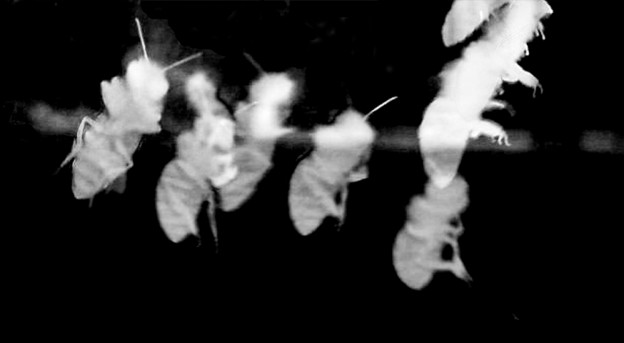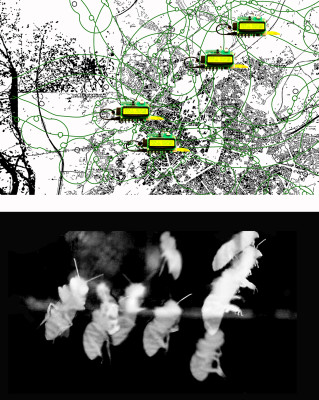Ethology is the scientific and objective study of animal behaviour, and is a sub-topic of zoology. The focus of ethology is on animal behaviour under natural conditions, as opposed to behaviourism, which focuses on behavioural response studies in a laboratory setting.
Many naturalists have studied aspects of animal behaviour throughout history. The modern discipline of ethology is generally considered to have begun during the 1930s with the work of Dutch biologist Nikolaas Tinbergen and by Austrian biologists Konrad Lorenz and Karl von Frisch, joint winners of the 1973 Nobel Prize in Physiology or Medicine. Ethology is a combination of laboratory and field science, with a strong relation to some other disciplines such as neuroanatomy, ecology, and evolution.
http://en.wikipedia.org/wiki/Ethology
With the Sound Beehive experiment, we have been building a laboratory to study the development of the colony through its own sounds. The buzz of a colony and its behaviour and conditions are quite related. It is possible to know if a hive is queenless or if an important amount of nectar has been collected simply by listening to it.
For this experiment we follow a systemic approach to raise understanding of the characteristics of the colony through relationships with its environment, through patterns discovered in the collected audio, video and sensor data, and through contextual observations. We study the bees as a re-generating network of actors (autopoiesis), all of them contributing to the organisation and well functioning of the colony, the super organism.
Specific hardware and software is developed in order to continually monitor the sounds on different spots in the beehive.
We upload our annotated video and audio data for public viewing in our opensource videodatabase pandora. All corresponding sensor data are publicly available on opensensordata.net. The information archive grows as more audiovisual observations and more sensordata are added over time.

